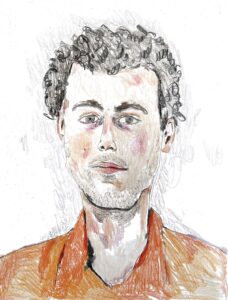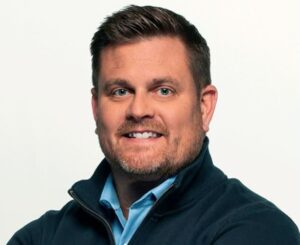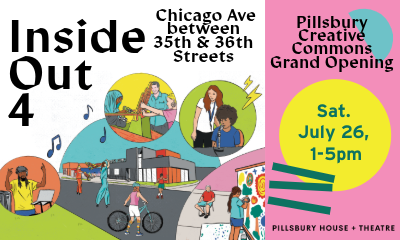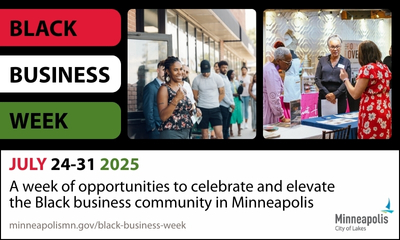
Luigi Mangione (art by Cooper Gatzmer)
BY ED FELIEN
From the Manifesto of Luigi Mangione:
“A reminder: the US has the #1 most expensive healthcare system in the world, yet we rank roughly #42 in life expectancy. United is the [indecipherable] largest company in the US by market cap, behind only Apple, Google, Walmart. It has grown and grown, but [h]as our life expectancy? No the reality is, these [indecipherable] have simply gotten too powerful, and they continue to abuse our country for immense profit because the American public has allowed them to get away with it.
“Obviously the problem is more complex, but I do not have space, and frankly I do not pretend to be the most qualified person to lay out the full argument. But many have illuminated the corruption and greed (e.g.: Rosenthal, Moore), decades ago and the problems simply remain.”
Elizabeth Rosenthal wrote “An American Sickness: How Healthcare Became Big Business and How You Can Take It Back.” Michael Moore made the 2007 documentary film “Sicko.”
It was a shot heard round the world.
He made us conscious of each other. We shared the moment. The frustration with the unexpected cost and, sometimes, the desperation.
We felt a new unity.
He was our hero.
We were a slumbering giant, and he awakened us.
There is no doubt that the sparks from Luigi Mangione’s gun have ignited a prairie fire. He has raised our consciousness of the universality of popular contempt for the corrupt medical care in America. He has exposed the violence that each of us must endure because we might be somehow out of network.

UnitedHealthcare CEO Brian Thompson earned over $10 million annually.
Their indifference to our suffering has taught us to be indifferent to theirs.
Senator Elizabeth Warren grilled the United Health CEO months before the Mangione killing. She commented:
“The visceral response from people across this country who feel cheated, ripped off, and threatened by the vile practices of their insurance companies should be a warning to everyone in the health care system.
“Violence is never the answer, but people can be pushed only so far.
“This is a warning that if you push people hard enough, they lose faith in the ability of their government to make change. They lose faith in the ability of the people who are providing the health care to make change, and start to take matters into their own hands in ways that will ultimately be a threat to everyone.”
Veteran civil rights attorney Ron Kuby told The Guardian: “He has one and only one viable defense and that is extreme emotional disturbance. One version of extreme emotional disturbance is he just snapped, but the defense is broader than that and certainly covers the slow, bitter, corrosive wearing away of normal sentiments of right and wrong until it all collapses in pain.”
“The good thing about the defense, from what I’m going to assume is Mr. Mangione’s perspective, is that it’s a strong legal defense or at least it’s a viable legal defense, but it’s also a very strong public, political defense. All of his difficulties with the health insurance industry, all of his problems with them, everything that he knows and has read and has heard, the whole narrative comes in at the trial to show his state of mind.”
People might come to think, “He saw so much sufferin’ and there was his own pain, too. It just drove him over the edge.”
N.Y. Penal Law, Section 40.15 – Mental disease or defect:
“In any prosecution for an offense, it is an affirmative defense that when the defendant engaged in the proscribed conduct, he lacked criminal responsibility by reason of mental disease or defect. Such lack of criminal responsibility means that at the time of such conduct, as a result of mental disease or defect, he lacked substantial capacity to know or appreciate either:
“1. The nature and consequences of such conduct; or
“2. That such conduct was wrong.”
If livin’ were a thing money could buy
You know the rich would live and the poor would die
All my trials, lord, soon be over.
– A Traditionl American Spiritual























“Violence is never the answer, but people can be pushed only so far”
Oh the corrosive power of three letters. You’re thinly veiled tacit endorsement of cold-blooded murder undermines the points of your article that might be worth pondering.